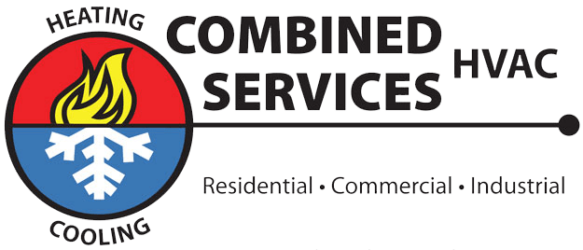We often underestimate the profound impact our indoor environment has on our well-being. The quality of the air we breathe can mean the difference between a clear-headed, productive day and one marred by the irritants of seasonal allergies. With a relentless battle against the pernicious pollen and dust in the air during spring and summer, a well-maintained HVAC (Heating, Ventilation, and Air Conditioning) system is more than a convenience – it’s a frontline defender of our health.
Understanding the Link
With the arrival of the warmer months, allergy sufferers brace themselves for the inevitable onslaught of pollen and mold spores. What many fail to realize is that a significant portion of the irritants are not from the great outdoors but are brought in and circulated by their HVAC systems. This isn’t to vilify the machines; rather, it underscores their pivotal role in managing indoor air quality.
Spring Cleaning – for Your HVAC
Regular maintenance, akin to spring cleaning for your HVAC system, is not just an option; it’s a health imperative. Filters laden with dirt, grime, and organic matter become breeding grounds for allergens. Ensuring these are cleaned or replaced as needed isn’t only about energy efficiency – it’s about keeping allergies at bay.
Filtration and Circulation
Quality HVAC systems don’t just manage temperature; they’re equipped with filters designed to catch a myriad of particles. From basic hair and dust to the microscopic culprits responsible for making us sneeze, these filters play a vital role in maintaining air purity. When the system is neglected, this function is compromised, and allergies inevitably worsen.
The Benefits of Proactive System Maintenance
It’s not just about reducing the visible dust but about eradicating the airborne menaces that gradually degrade air quality. A proactive approach to HVAC maintenance yields a host of benefits, all with the common goal of safeguarding health.
Improved Air Filtration
A filtration system functioning at its peak is your best defense against airborne allergens. Regular maintenance ensures that filters work effectively, without blockages or leaks that may bypass filtration. This simple act traps a significant amount of irritants, preventing them from circulating in your home and causing allergic reactions.
Reduced Allergens and Pollutants
The efficiency of an HVAC system hinges on the cleanliness of its components. By keeping coils, ducts, and vents free from debris, there are fewer organic materials to decompose and release pathogens. By maintaining a sterile environment within the system, we limit the contribution of our HVAC to our indoor allergy load.
Enhanced Respiratory Health
Clean air is essential for those with respiratory issues or chronic allergies. An HVAC system maintained to the highest standard offers that reprieve by enabling the circulation of healthy, clean air. It’s not an overstatement to say that well-maintained HVAC systems can contribute to the management of chronic respiratory conditions, enabling better lives for those who suffer from them.
Acknowledging the Broader Context
The connection between indoor air quality and health is not a novel discovery, but it’s one that warrants repeating. Our homes are our sanctuaries, and the air within should nurture, not harm.
The Role of Humidity Control
In the battle against allergens, humidity exerts a subtle but significant influence. High humidity levels foster the growth of molds, while excessively dry air can exacerbate respiratory issues. Modern HVAC systems are designed to provide precise control over humidity, helping to create an environment in which allergen formation is discouraged.
The Human Factor
An often overlooked aspect of HVAC maintenance is the discerning eye of the technician. It’s not just about what the system reports – it’s the lived experience of the person who services it. A technician who knows your system can make invaluable observations and adjustments, tailoring your HVAC’s performance to the unique indoor air quality needs of your home.
The Call to Action
The implications are clear. Our health and the health of our loved ones are intricately linked with the air we breathe, especially in the context of seasonal allergies. It’s time to prioritize the maintenance of our HVAC systems not as a luxury but as an essential investment in well-being.
A Lifestyle Shift
Change often begins with awareness. As we become more conscious of the benefits of a well-maintained HVAC system, it should prompt action. Scheduling regular check-ups and being vigilant about the condition of our systems should be as habitual as visits to the doctor’s office. The dividends, in reduced allergy symptoms, are well worth it.
Policy Making and Advocacy
The responsibility for promoting better indoor air quality shouldn’t rest solely on the homeowner’s shoulders. Policymakers and health advocates have an opportunity to champion regulations and public awareness campaigns that support systemic maintenance. By doing so, they can contribute to the overall health of communities, especially in urban settings where indoor air quality can be substantially impacted by shared HVAC systems.
Conclusion
The impact of a well-maintained HVAC system on seasonal allergies is more than just anecdotal – it is a tangible representation of the connection between our environment and our health. It’s a reminder that the invisible processes that keep our homes comfortable are the same ones that can keep us from enjoying our lives to the fullest during allergy season and year-round. By recognizing the value of our HVAC systems and ensuring their proper maintenance, we take a proactive step towards a healthier, more comfortable indoor environment. It is a simple act that can lead to profound benefits for everyone under your roof.
